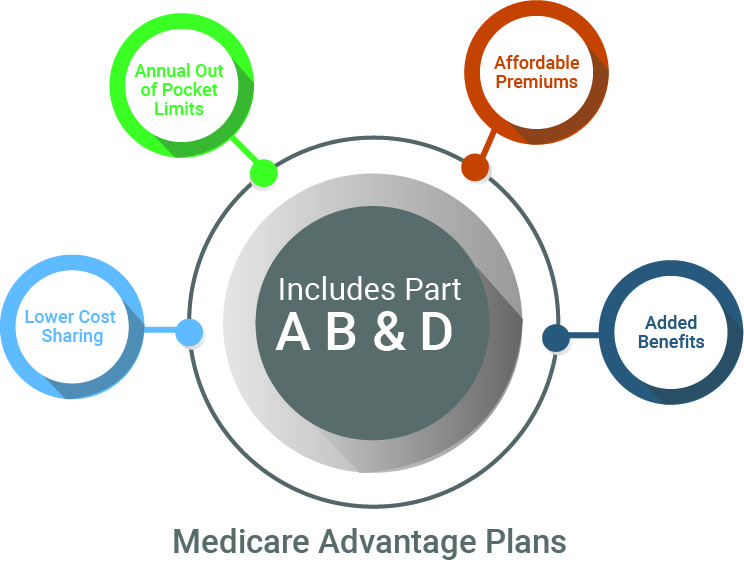What Are the Benefits of Medicare?
Medicare is a government-funded health insurance program in the United States that provides coverage for eligible individuals aged 65 and older, as well as certain younger individuals with disabilities. It offers a range of benefits that are designed to ensure access to necessary healthcare services. In this article, we will explore the various advantages of Medicare and how it can benefit individuals and their families.
Comprehensive Coverage
Medicare offers comprehensive coverage that includes hospital insurance (Part A), medical insurance (Part B), and prescription drug coverage (Part D). This comprehensive approach ensures that beneficiaries have access to a wide range of healthcare services, from hospital stays to doctor visits and prescription medications.
Affordability
Medicare provides affordable healthcare options for eligible individuals. While beneficiaries may be required to pay certain premiums, deductibles, and co-payments, Medicare helps to alleviate the financial burden associated with healthcare expenses. The program offers different plans and options, allowing individuals to choose the coverage that best suits their needs and budget.
Access to a Network of Providers
Medicare beneficiaries have access to a vast network of healthcare providers, including doctors, hospitals, and specialists. This wide network ensures that individuals can receive the care they need from qualified professionals, without facing significant barriers or limitations.
Preventive Services
Medicare emphasizes the importance of preventive care and offers a range of preventive services at no additional cost to beneficiaries. These services include screenings, vaccinations, and counseling, which can help detect and prevent potential health issues before they become more severe.
Flexibility
Medicare provides flexibility in terms of coverage and choices. Beneficiaries can choose between the traditional Medicare program or Medicare Advantage (Part C) plans, which are offered by private insurance companies approved by Medicare. Medicare Advantage plans often include additional benefits such as dental, vision, and hearing coverage, providing individuals with more comprehensive care options.
Prescription Drug Coverage
Medicare Part D offers prescription drug coverage, which helps beneficiaries afford the cost of necessary medications. This coverage helps individuals save money on their prescriptions and ensures that they have access to the medications they need to manage their health conditions effectively.
Peace of Mind
One of the significant benefits of Medicare is the peace of mind it provides to beneficiaries and their families. Knowing that they have access to essential healthcare services and financial protection can alleviate stress and worry, allowing individuals to focus on their health and well-being.

In conclusion, Medicare offers a range of benefits that contribute to the overall well-being of eligible individuals. The program provides comprehensive coverage, affordability, access to a network of providers, preventive services, flexibility, prescription drug coverage, and peace of mind. By understanding the advantages of Medicare, individuals can make informed decisions about their healthcare options and ensure they receive the necessary care and support they need.
Frequently Asked Questions about Medicare Benefits
1. What are the benefits of Medicare?
Medicare provides health insurance coverage for individuals aged 65 and older, as well as certain younger individuals with disabilities or end-stage renal disease. The benefits include hospital insurance (Part A), medical insurance (Part B), and prescription drug coverage (Part D).
2. Can Medicare help cover my hospital expenses?
Yes, Medicare Part A helps cover inpatient hospital stays, skilled nursing facility care, hospice care, and some home health care services.
3. What medical services does Medicare Part B cover?
Medicare Part B covers doctor visits, outpatient care, preventive services, medical supplies, and certain screenings and vaccinations.
4. Does Medicare provide prescription drug coverage?
Medicare Part D offers prescription drug coverage, helping to lower the cost of medications prescribed by doctors.
5. Are there any additional benefits I can get with Medicare Advantage plans?
Yes, Medicare Advantage plans (Part C) are offered by private insurance companies and often include extra benefits such as dental, vision, hearing, and fitness programs.
6. Can I receive Medicare benefits if I have a pre-existing condition?
Yes, Medicare cannot deny coverage or charge higher premiums based on pre-existing conditions.
7. Are preventive services covered by Medicare?
Yes, Medicare covers a wide range of preventive services, including screenings, vaccinations, and annual wellness visits.
8. What is the Medicare Advantage Open Enrollment Period?
The Medicare Advantage Open Enrollment Period allows individuals already enrolled in a Medicare Advantage plan to switch to another plan or return to Original Medicare, with or without prescription drug coverage, from January 1 to March 31 each year.
9. Can I get financial assistance with Medicare costs?
Yes, individuals with limited income and resources may qualify for programs that help pay for Medicare premiums, deductibles, and coinsurance.
10. How do I apply for Medicare benefits?
You can apply for Medicare benefits online, by phone, or by visiting your local Social Security office. It is recommended to apply during your Initial Enrollment Period, which usually starts three months before your 65th birthday.




